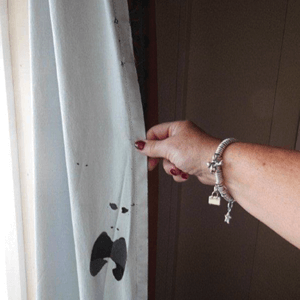Has it happened to you that you start a small argument with your wife, partner or girlfriend, over a small thing but neither of you acknowledges any wrongdoing and both start to blame the other side? In many cases this is what starts off from a small thing that escalates to a point where you are so emotionally hurt that you start to doubt the whole relationship.
Well, this is also what happens when a customer complains to an organization and the complaint is not handled appropriately. By nature, complaints are emotional. Those who complain feel hurt. It’s important however for the organization to understand that the customers, who complain, value their relationship with the organization and want to help it improve. They are the ones who care and give you a chance to fix things, whilst many more customers didn’t bother to tell you about the bad experiences they had. Research shows that for every customer complaint, there are 26 other unhappy customers who have remained silent (Lee Resource).
Have organizations considered the following facts and put an adequate strategy in place?
- 96% of unhappy customers don’t complain, however 91% of those will simply leave and never come back – 1st Financial Training services
- A dissatisfied customer will tell between 9-15 people about their experience. Around 13% of dissatisfied customers tell more than 20 people. – White House Office of Consumer Affairs
- Happy customers who get their issue resolved tell about 4-6 people about their experience. – White House Office of Consumer Affairs
- Dissatisfied customers whose complaints are taken care of are more likely to remain loyal, and even become advocates, as those that are ‘just’ customers – Strauss & Seidel
- A customer is 4 times more likely to defect to a competitor if the problem is service related than price or product related – Bain & Company
- It costs 6 – 7 times more to acquire a new customer than retain an existing one – Bain & Company
- A 2% increase in customer retention has the same effect as decreasing costs by 10% – Leading on the Edge of Chaos, Emmet Murphy & Mark Murphy
“No” is the answer as the following experience will show you the value of proper complaints handling experience.
The Story
Our Financial Director, David Ive, had booked a holiday with Royal Caribbean. He and his wife – Sue Ive, are “Emerald” members and for the last 10 years been loyal customers and promoters of the company averaging more than one cruise a year.
However this cruise turned out to be a complete disaster. Upon arriving at the check-in they were asked if they were aware about the bikers’ High Seas Rally convention, which they were clearly not.
 There were a number of things that were not right:
There were a number of things that were not right:
- The carpet on their deck was removed and replaced by carpet pieces held together by tape. It only got replaced on the 5th day.
- The room was nothing like what they were used to – no bath, much smaller, tiny closet and in desperate need of refurbishment e.g. smelled bad, curtain linings were in holes, balcony panels were broken and held together with black rubber.
- They got overcharged for a “deluxe beach break”, which was not a “deluxe” on first place and second, the price they paid was off than the price advertised in the on-board brochure.
- But the most disappointing was the atmosphere. 2/3 of the passengers were bikers. There were no formal dinner nights as most people had leather jackets with metal spikes and even the waiters wore biker t-shirts over their uniforms. The night shows were empty and reduced to a minimum and instead there were a “Fancy Dress Halloween Party”, “Pirate Party” and “Tattoo Show”.
 The experience was apparently built towards the bikers. There is nothing wrong with that. The bikers must have enjoyed it. However the other people felt mislead as no one warned them that this will not be a typical Royal Caribbean cruise, but rather a bikers cruise like no other they have experienced.
The experience was apparently built towards the bikers. There is nothing wrong with that. The bikers must have enjoyed it. However the other people felt mislead as no one warned them that this will not be a typical Royal Caribbean cruise, but rather a bikers cruise like no other they have experienced.
1st letter of complaint
So, David and Sue put all the above in a letter to Royal Caribbean to express their disappointment and said that they would re-consider their intention to book next year’s cruise with 15 family members for their anniversary.
The company response
The answer they received was hardly satisfactory. It followed a structure of acknowledging what has happened, apologizing or feeling sorry they felt that way and then saying that they try to provide best service but couldn’t do anything in that instance. The most disturbing was when they tried to use an internal privacy policy to justify the fact that they were not told about the biker convention e.g. “For privacy purposes, we do not share booking information to anyone other than the guests booked directly in that reservation. Nevertheless, I do regret you did not have the experience you had planned for”.
At the end the company offered a voucher of $100 off their next booking – petty cash given their history and that their next booking would’ve cost $13,000. This added to the insult of hiding behind a privacy policy that’s just not relevant in this case. They could’ve just let people know the sailing will be with a large group of bikers. Dave and Sue would have just booked on another week. In addition, since the sailing was oversubscribed with bikers anyway they could’ve just closed the deck that needed maintenance and kept the cruise for the bikers.
Follow-up
So David and Sue replied that this offer was an insult and argued that on other cruises, that had suffered severe storms things got fixed much faster.
Yet the company wrote back and said they won’t change their offer.
By that time a local newspaper had featured a story on the Royal Caribbean furore and featured a story under the title “How 2,500 hairy (and lairy) bikers ruined our Caribbean Cruise” with pictures of a 330lbs biker participating in a “belly smacker” pool diving competition. After the newspaper featured the story the family got reimbursed for the full value of their cruise – $6400.
How much is a customer worth?
When David wrote back to say they expect the same compensation they got denied. Now, what started as an opportunity for the company to make up for the bad experience and keep a loyal customer, got escalated to the point where David and Sue are considering suing the company and would never set foot on it again. That means the company lost at least $50 000 of net revenue for the next 10 years just from them two and you can add the potential court costs and the cost of more managers time to deal with this single complaint.
What’s more they’ve told all their friends. Consider the potential amount if their friends follow them on someone else’s cruise. Now do you still think that a 2% increase in customer retention has the same effect as decreasing costs by 10% is not realistic and an exaggeration?
I hope these statistics and story serve as a wake up call for companies to reconsider their complaints handling procedures. This is especially important for the banking industry. Following the 2008 financial crisis where the banks took the blame and were bailed out with tax payers’ money, customers became even more sensitive and likely to complain. A report by the Financial Services Authority (FSA) in UK showed Royal Bank of Scotland was getting 1,600 complaints every day. Overall, the FSA reported that over 66 per cent of the complaints were handled badly with 18 per cent of those resulting in an unfair outcome for the customer.
Other industries with high complaints ratio recently are the aviation, automobile and of course the ever present telecom’s industry.
For the key to successful complaints resolutions see our white paper here.
| Zhecho Dobrev is a consultant and project manager for Beyond Philosophy. He has worked with a wide array of large corporate companies. Zhecho’s expertise includes customer behaviour analytics, customer loyalty, complaints management and journey mapping. He holds an MBA and Master’s degree in International Relations. Zhecho Dobrev on Twitter @Zhecho_BeyondP |

